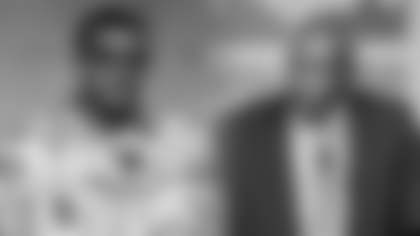For just the briefest period in the late days of 1959 and the early days of 1960, the Denver and Minnesota franchises both were members of the American Football League.
Their membership was merely on paper, but the eight original AFL franchises included one in Minneapolis.
Of course, the impetus for the entire creation of the AFL was the NFL's refusal to let Lamar Hunt have an expansion franchise in his native Dallas, or to let him purchase the Chicago Cardinals and relocate that team to Dallas.
So Hunt started his own league, and Minneapolis was to be one of the teams.
But then the NFL owners — led by George Halas of the Chicago Bears — realized that the AFL was actually going to begin business as a competitor.
One of the first actions ever taken by the NFL owners to attempt to stifle the AFL was to offer a franchise to the Twin Cities.
Naturally, the folks in the land of 10,000 lakes much preferred membership in the NFL to the huge risk represented by the AFL, so the Minneapolis franchise departed the AFL without even opening offices.
So then the AFL had just seven teams and desperately needed one more to get off the ground.
Meanwhile, Los Angeles owner Barron Hilton was making noise that if he did not have a West Coast rival for what would become his Chargers, he too was out.
Desperate times call for desperate measures, so the AFL quickly found ownership, however shaky, willing to stake a team in Oakland.
Hence, the Raiders were born (first as the Señors, as it took two separate naming contests to produce the name "Raiders" for the Oakland franchise).
Meanwhile, the Minneapolis team took on the name of its state and chose the nickname Vikings, beginning play in 1961.
I actually saw the first game ever played by the Vikings, a 37-13 win over the established Chicago Bears, with a rookie quarterback named Fran Tarkenton putting his very first stamp on pro football.
The NFL ran roughshod over the AFL in terms of public and media perception, but the two leagues were competing for players with real money, and in no time it was obvious that a merger was necessary for the sake of the game.
After the merger came to pass, the first games ever played between the two leagues were preseason contests in 1967, and the Broncos made their first history with the Vikings that summer.
The first meeting between the Broncos and the Vikings was on a Friday night, on Aug. 18 at the University of Denver Hilltop Stadium, which has long since been demolished.
A sellout crowd of 31,850 (including this author) watched as Rose Bowl hero Ron Vander Kelen started for Minnesota against free agent Max Choboian of the Broncos.
Denver prevailed 14-3 after having defeated the Detroit Lions the previous week by a 13-7 margin, so the woeful Denver Broncos thus became the AFL franchise to post the first two wins ever over NFL teams.
Now those preseason games in 1967 are a mere footnote in pro football history, but at the time it was huge.
Lou Saban had taken over the Broncos with a ten-year contract as general manager and head coach, and for the first time pro football fortunes were looking up in the Mile High City, especially after the team drafted and signed former Syracuse three-time All-American halfback Floyd Little.
Of course, the Denver Broncos did not have their first winning season until 1973, and while the Broncos were undergoing growing pains that seemed to take decades, the Vikings went to the Super Bowl four times in a span of eight years.
But sometimes slow and steady wins the race.
Now the Broncos are one of just nine franchises to have won the Super Bowl three times, and Denver has been to the big game eight times to Minnesota's four.
That is just a brief look back in the hopes of reminding everyone that the big picture is never determined by just one game, which the two teams will play this week at the Vikings' fabulous new stadium in Minnesota.
This is an anniversary year in pro football, and it has been over 50 years since the Broncos hosted the Vikings in that ramshackle stadium on the DU campus.
The future lies ahead for the Denver Broncos, and for me, the Vikings will always be a reminder of how far the Broncos have come since that summer night in 1967.















